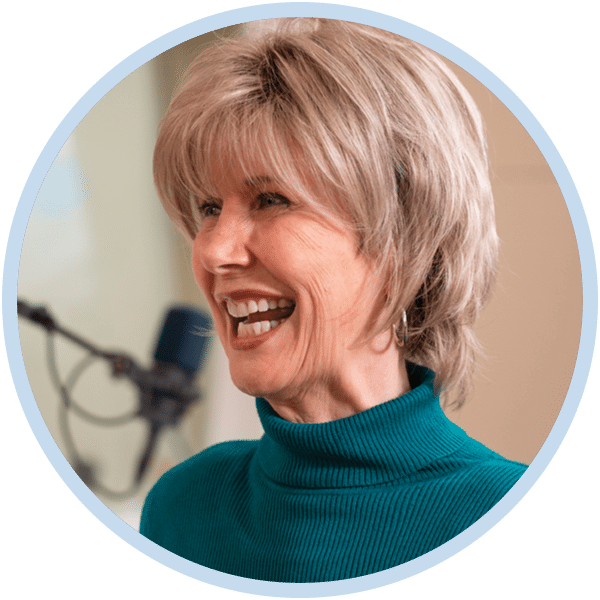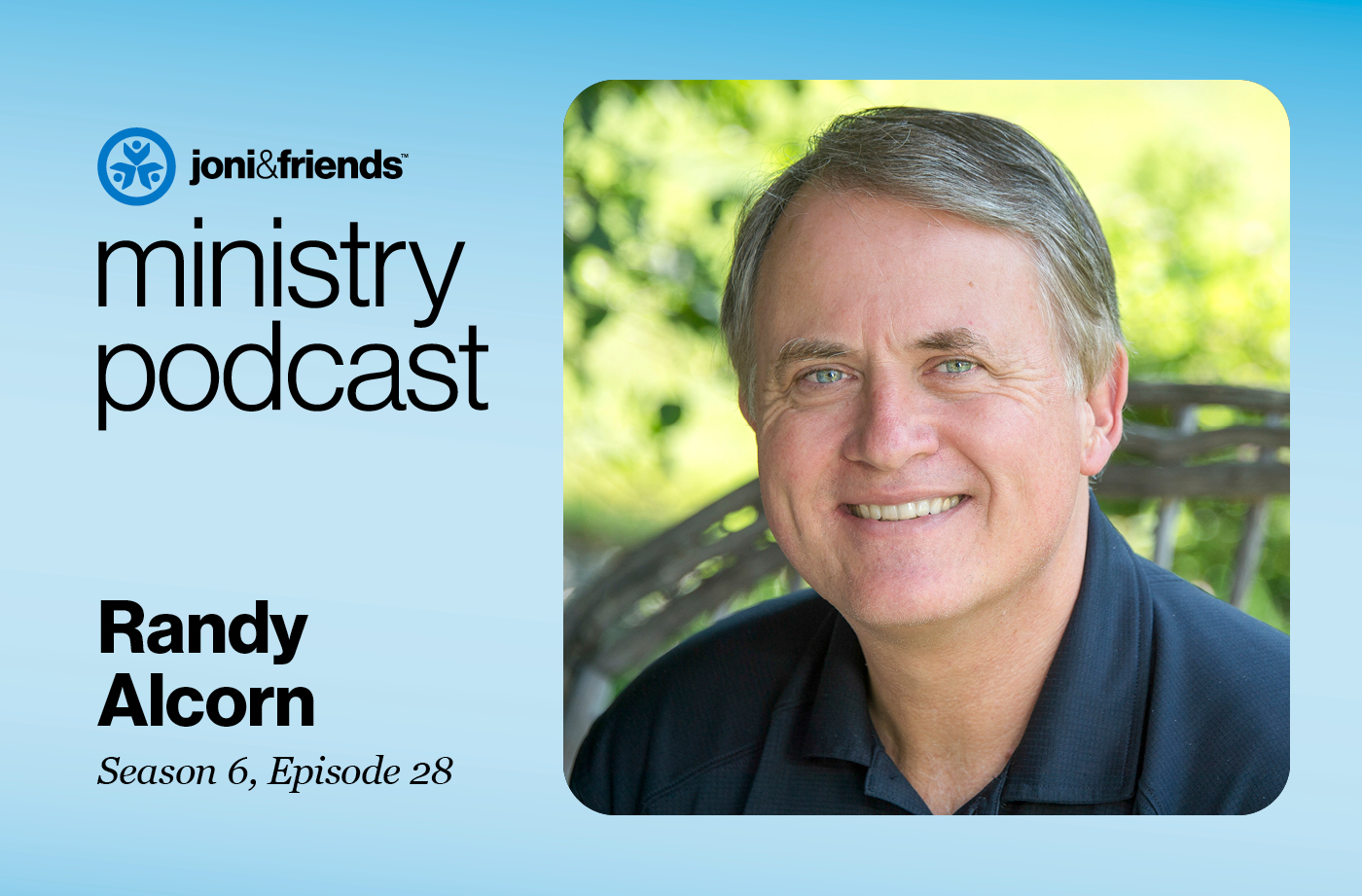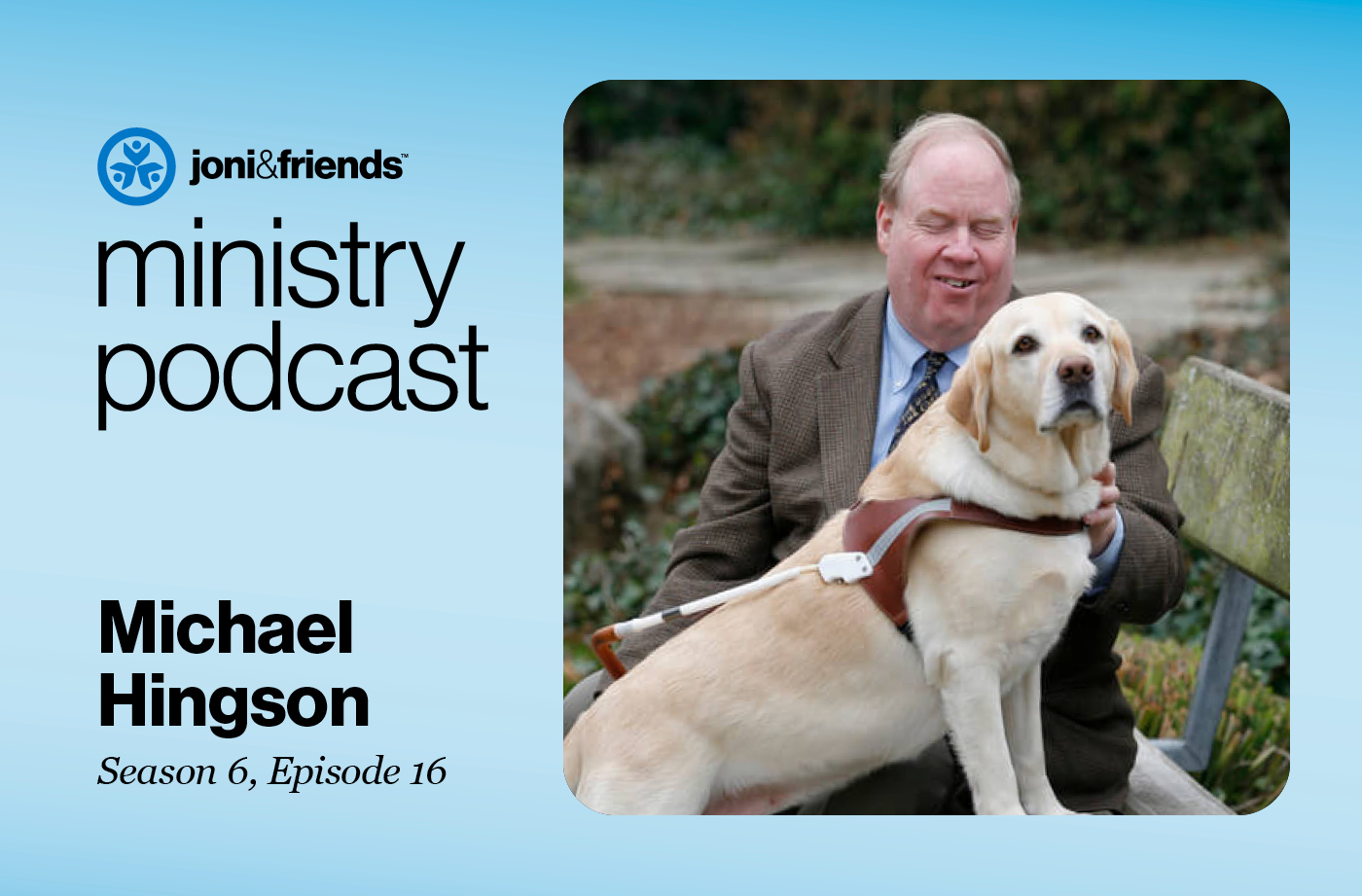How to Flourish Within Your Limitations
Subscribe to the Joni and Friends Ministry Podcast
Katherine Wolf kicked off Season 4 of the Joni and Friends Ministry Podcast with a compelling conversation about suffering. After surviving a catastrophic stroke at age 26, which left her with profound disabilities, Katherine now works to break down the myth that joy can only be found in a pain-free life.
Here, in Episode Two, Katherine digs deeper into the topic of suffering, and particularly, how to flourish within our limitations. Like all of us, and Joni Eareckson Tada, Katherine has struggled through questions about suffering.
We as believers have all been there: we make a request to God in prayer, then wait for him to give us what we want. When we don’t get the results or answer we hope for, we get frustrated, perplexed, or even angry with God.

“How do you work out the reality that not all prayers get answered the way we want them to?”
Katherine’s response?
“That is a classic difficult question. I think so many times, if the answer is not what we would have wanted, we have to trust that there is one who’s answering the prayer that we actually may need…I might pray to walk again, but if that doesn’t happen this side of heaven, God knows my story better than I do.
God knows everything that I need to live a life in a wheelchair. And we can understand and thank God somehow for unanswered prayers, because he’s keeping us from things that are not for us.
And I think that’s a great comfort. So much of God’s not answering prayers the way we would have wanted is about protection.”
In short, we need to trust God and embrace his way in our lives, even when that means letting go of getting our own way.
What does it mean to suffer well?
Suffering well begins with trusting God, not just with the future, but also with the past and the present. Katherine points out that how we remember our lives really matters:
“I think the Bible calls us to a biblical remembrance. Let the past go but learn the right lessons from the past. Forgive yourself, yes! Move on. But, goodness, don’t go forward forgetting what God’s done.”
We’re called, over and over, to remember: learn the right things from where we’ve been, and take that with us. I think the past is inspiration for the future, to help us live with hope of God showing up.
Trusting God with the past, present, and future makes it possible to redefine the suffering we experience. Without sugarcoating or denying the gravity of the pain or grief we go through, when we pay attention to God showing up in our story, and weaving threads of the God story into our story.
How can we cope with pain, grief, or disability?
While we can’t always control the events or problems in our lives, we do get to choose how to tell and understand our own stories. Sometimes in order to cope with suffering, we need to re-tell our stories, remembering to include our great and loving God.
Over years, Katherine has learned to re-narrate the story of her stroke:
“My biggest example would be the “tragedy” of my stroke. I could see the stroke as this horrible, terrible thing in my past that is haunting—and I’m cursed! Or…I lived! I should be dead, but I’m alive! I’m here. It’s a miracle.”
I could look at my broken body the same way, like this is tragic. Look at my life in a wheelchair. Look at this really awful story. Or, I can recognize—oh, my word!—I am a living miracle! The Lord has given me a second-chance life. I’m here. I’m in the room.
I believe that if you have a pulse, you have a purpose. And I definitely have a pulse (and fast!).” And once we wake up to our new story, and how God has shown up in our lives, we get to go tell our story to the world.
As Christians, we are called to re-narrate the world to the world—
to help people escape a victim mentality and to see that we have agency in how we respond to what happens to us in life.
How can we find hope amid suffering?
Katherine often turns to Romans 5 for hope: “Suffering produces perseverance; perseverance, character; and character, hope. And hope does not put us to shame.”
Romans 5:3-4
So much of the story of my suffering has this deep, horrible pain, lots of unmet expectations, unwanted everything—surgeries, future diagnoses, terrible falls—a lot of really bad stuff. But through it all, it’s undeniable that God is still at work, keeping so much away from me that could hurt me.
That could seem radical to say, when I’ve had this massive stroke, that the Lord has been protecting me, but it’s the truth! It’s totally true that the worst has not happened. I am here on earth. And I can start with a deep hope in God, right there. He’s with me right here.
And that is the choice that every person in a wheelchair, every person who is severely disabled, has—to see that God has them here on this earth, even in a broken body, for a reason. And we may not understand or know, but there is hope.
You know the very smallest sign of life is the beginning of hope.
And that hope fuels more hope, and more hope, and more hope. I believe the more hope we feel and internalize, the more we give. And it feeds itself—it’s the beautiful truth of 2 Corinthians 1, that we share hope, and we are comforted, then we give comfort. It’s a cycle:
“If we are distressed, it is for your comfort and salvation; if we are comforted, it is for your comfort, which produces in you patient endurance of the same sufferings we suffer. And our hope for you is firm, because we know that just as you share in our sufferings, so also you share in our comfort.”
2 Corinthians 1:6-7

How can we do hard things?
The truth is, we don’t always feel comforted. We, like Katherine, like Joni, and like Jesus, experience hardship in life, some of which won’t go away during our time on earth.
Crystal asked Katherine what truths she wishes she’d known before she had her stroke.
Katherine answered: “I wish I would have internalized that life will bring very hard things. But you can do very hard things because Jesus is at work in you. Parents and communities don’t want to emphasize to children the message that ‘life is going to be really hard.’ We try to shelter our children from really hard things. But the reality is that hard things are coming. They will come.”
“I have told you these things, so that in me you may have peace. In this world you will have trouble. But take heart! I have overcome the world.”
John 16:33
“I would tell little Katherine to expect more of God and less of this world. We’re putting our eggs in the wrong basket, so to speak. We think our lives will overwhelm every expectation we’ve ever had.
It’s natural that I want my life to be wonderful and turn out wonderful and perfect. And yet the reality is, it probably won’t be that way. So expectations need to be shifted. We are trying to teach our boys that God made them to do hard things, and that’s within the good story he’s writing. He’s writing beautiful stories in their lives. The good and the hard go hand in hand. We have good-hard stories.”
Katherine

How can we flourish within our limitations?
Katherine talks about the blessing of limited options—the possibility of flourishing within our limitations.
We have the chance to redefine our constraints as opportunities rather than barriers. This can expand our thinking and enliven us in ways we could never imagine otherwise.
How has Katherine redefined her constraints?
She says: “In a thousand little ways. For example, I live in a wheelchair. It could be seen by many as tremendously confining. That I’m ‘wheelchair bound.’ But I reject that. I am flourishing in a wheelchair.
The wheelchair takes me out in the world. The wheelchair takes me where I want to go. It enables me to do my life—to show up in the rooms I want to be in. So the wheelchair is not an agent that confines me; it frees me.
It’s true in so many stories, that what looks like constraint can actually be an avenue to freedom, if you see it that way.”
Katherine trusts God’s calling in her life. She hears God saying, “I’ve sat you down to raise you up.” Now, she focuses on stewarding her calling, and invites others to do the same.
Am I alone in my suffering?
Too often, suffering makes us feel alone. Disability notoriously causes isolation, as does grief, and even physical pain. For anyone who feels alone right now, Katherine has a direct message:
“God is right there where you are, comforting you, surrounding you with a deep peace, no matter the storm. You are going to be okay, no matter what is to come in your life.
Good things of God are alive in you: peace, joy, and hope.
He will not withhold good things from you. Look at Psalm 84:11:
“For the Lord God is a sun and shield;
the Lord bestows favor and honor;
no good thing does he withhold
from those whose walk is blameless.”
Take it from Katherine (and Joni!): No matter how bad things look, the Lord Jesus will see us through all our struggles.

Does God Offer a Deeper Healing?
Listen as Crystal talks with Joni about the deeper healing she received, and why God allows hardships and pain to remain in our lives.











